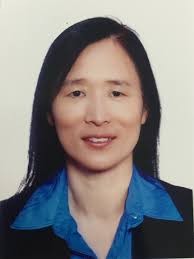Day 1 :
Keynote Forum
Fernando de la Calle
PharmaMar, Spain
Keynote: Title: Marine microbiome and drug discovery
Time : 09:20-09:50

Biography:
Abstract:
Keynote Forum
Jose S Torrecilla
Complutense University of Madrid, Spain
Keynote: Spectroscopy and non linear algorithms – A promising tool in the field of food technology
Time : 09:50-10:20

Biography:
Abstract:
Keynote Forum
Rong Murphy
Maple Leaf Farms, USA
Keynote: Impact of new food trends to food safety and quality in food manufacturing organizations
Time : 10:35-11:05

Biography:
Abstract:
- Oral Session 1
Location: Goya
Session Introduction
Natalija Sverchkova
Belarus National Academy of Sciences, Belarus
Title: Contribution of applied microbiology into national economy of Belarus Republic
Time : 11:05-11:25

Biography:
Natalija Sverchkova
Abstract:
Linda K Medlin
Marine Biological Association, UK
Title: Advances in molecular tools for routine monitoring of toxic algae and pathogens in aquatic ecosystems
Time : 11:25-11:45

Biography:
Abstract:
John Alderete
Washington State University, USA
Title: A recombinant chimeric protein comprised of immunogenic epitopes of metabolic enzymes is serodiagnostic target for Trichomonas vaginalis sexually transmitted infections
Time : 11:45-12:05

Biography:
Abstract:
Mariateresa Volpicella
Bari University, Italy
Title: Defining the prokaryotic biodiversity of the salterns of Margherita di Savoia (Italy) by amplicon based next generation sequencing analysis
Time : 12:05-12:25

Biography:
Abstract:
Mihai Nita-Lazar
National Research and Development Institute for Industrial Ecology-ECOIND, Romania
Title: Detection of waterborne pathogenic bacteria using immunofluorescence technique
Time : 12:25-12:45

Biography:
Abstract:
Catalina Stoica
National Research and Development Institute for Industrial Ecology-ECOIND, Romania
Title: New cellulosic economical enzyme-substrate based diet of pullets
Time : 12:45-13:05

Biography:
Abstract:
- Special Session
Location: Goya
Session Introduction
Marie Filteau
Laval University, Canada
Title: A systems biology approach to reveal the sweet secrets of maple syrup quality
Time : 13:50-14:20

Biography:
Abstract:
- Oral Session 2
Location: Goya
Session Introduction
Shaukat Iqbal Hashmi
National Aquaculture Group, Saudi Arabia
Title: Validation for total aflatoxins (aflatoxins B1, B2, G1 and G2) in shrimp & fish feed, shrimp hepatopancreaz and fish liver by ELISA
Time : 14:20-14:40

Biography:
Abstract:
Alejandro Garrido-Maestu
International Iberian Nanotechnology Laboratory, Portugal
Title: Isothermal DNA amplification for Salmonella spp. detection and characterization
Time : 14:40-15:00

Biography:
Abstract:
Rui Feng Mao
Guangxi University, China
Title: Analysis of microbial harm in sugar cleaning area of sugar mill
Time : 15:00-15:20

Biography:
Abstract:
Maria Turtoi
Dunarea de Jos University of Galati, Romania
Title: Pulsed light inactivation of wheat grain native microbiota and effect on germination capacity
Time : 15:20-15:40

Biography:
Abstract:
- Workshop
Location: Goya
Session Introduction
Amparo Gamero
Institute of Food Science and Technology– Spanish Research Council, Spain
Title: Non-conventional yeasts in bakery
Time : 15:55-16:45

Biography:
Abstract:
- Workshop
Location: Goya
Session Introduction
Santiago Benito
Polytechnic University of Madrid, Spain
Title: Non-Saccharomyces yeasts Lachancea thermotolerans and Schizosaccharomyces pombe applications in wine food microbiology. Influence in wine quality
Time : 09:30-10:10

Biography:
Abstract:
- Oral Session 1
Location: Goya
Session Introduction
Ala Mohan
The New Zealand Institute for Plant & Food Research Limited, New Zealand
Title: Comparative analysis of New Zealand Listeria monocytogenes isolates using PFGE, MLST, MVLST and whole genome sequence analysis
Time : 10:25-10:45

Biography:
Ala Mohan is working as a research scientist at The New Zealand Institute for Plant & Food Research Limited, New Zealand.
Abstract:
Phillipe P Minnaar
Agricultural Research Council, South Africa
Title: Schizosaccharomyces pombe and Saccharomyces cerevisiae yeasts in sequential fermentations: Effect on phenolic acids of fermented kei-apple (Dovyalis caffra L.) juice
Time : 10:45-11:05

Biography:
Abstract:
Michela Favretti
Istituto Zooprofilattico Sperimentale delle Venezie, Italy
Title: Efficacy of domestic cooking of experimentally infected bivalve shellfish: A case study
Time : 11:05-11:25

Biography:
Abstract:
Margit Olle
Estonian Crop Research Institute, Estonia
Title: Effective microorganisms improve the growth and quality of vegetables and soybeans
Time : 11:25-11:45

Biography:
Abstract:
Zhu Lixia
NNSFC Foundation, China
Title: Diversity and transmission of Saccharomyces cerevisiae population in Xinjiang province, China
Time : 11:45-12:05

Biography:
Abstract:
- Oral Session 2
Location: Goya
Session Introduction
Sanin Musovic
Danish Technological Institute, Life Science, Denmark
Title: The Trojan Horse: A new biotechnology for pesticide removal at drinking water sand filters
Time : 12:05-12:25

Biography:
Abstract:
Sergio Giannattasio
Institute of Biomembranes, Bioenergetics and Molecular Biotechnologies, Italy
Title: Identification of active compounds for the development of new anti-prostate cancer drugs: Comparative study in yeast and human cells
Time : 12:25-12:45

Biography:
Abstract:
Iris Yedidia
Plant Sciences – Agricultural Research Organization, Volcani Center, Israel
Title: Interkingdom signaling: Interference of plant derived small molecules with bacterial communication and virulence
Time : 12:45-13:05

Biography:
Abstract:
David Sartory
SWM Consulting Ltd, UK
Title: Evaluation of a rapid and simple MPN method for enumerating Legionella pneumophila from water
Time : 13:50-14:10

Biography:
Abstract:
Sanin Musovic
Danish Technological Institute, Denmark
Title: Integration of natural microorganisms at drinking water sand filters with groundwater composition
Time : 14:10-14:30

Biography:
Abstract:
Rasih Felek
Akdeniz University Hospital Central Laboratory, Turkey
Title: Evaluation of Aspergillus immunochromatographic lateral flow device and galactomannan antigen test for the presence of invasive aspergillozis in patients with haematologic malignancies
Time : 14:30-14:50

Biography:
Abstract:
- Young Research Forum
Location: Goya
Session Introduction
Tugce Ulutasdemir
Sakarya University, Turkey
Title: Investigation of effect of edible coating containing Williopsis saturnus var. saturnus on aflatoxin production in peanuts
Time : 14:50-15:05

Biography:
Abstract:
Parul Thapar
Indira Gandhi National Open University, India
Title: Application of biosensors for detection of contaminants in milk and milk products
Time : 15:05-15:20

Biography:
Abstract:
Javeria Samad
Habib University, Pakistan
Title: Prevalence and sources of food borne infections attributed to drug resistant pathogens in street food of Karachi, Pakistan-A risk to public health
Time : 15:20-15:35

Biography:
Abstract:
Grettel Aviles Sayas
The Universidad Veracruzana, Mexico
Title: Nickel and vanadium toxicity in plant growth promoting microorganisms
Time : 15:35-15:50

Biography:
Abstract:
Nadeem Hafeez
Center for Excellence in Molecular Biology (CEMB), Pakistan
Title: Hertrologous expression of uncharacterized wild type and mutated Universal Stress Protein-2 (USP-2) gene from Gossypium arboreum-FDH-171 confers osmotic and salt resistance to Pichia pastoris and Escherichia coli
Time : 15:50-16:05

Biography:
Abstract:
- Poster Session
Location: Goya
Session Introduction
Ahmed Marroki
University Djillali Liabes, Algeria
Title: Heterogeneity in technological traits of lactobacilli isolated from Algerian goat’s milk

Biography:
Abstract:
Alejandro Garrido-Maestu
International Iberian Nanotechnology Laboratory, Portugal
Title: Isothermal DNA amplification for Salmonella spp. detection and characterization

Biography:
Abstract:
Carmen Candel-Perez
Universidad de Murcia, Spain
Title: Occurrence of Clostridium difficile in edible bivalve molluscs in Spain

Biography:
Abstract:
Giovanna La Salandra
Istituto Zooprofilattico Sperimentale della Puglia e della Basilicata, Italy
Title: Molecular typing of methicillin-resistant Staphylococcus aureus (MRSA) isolated from milk and dairy products in southern Italy

Biography:
Abstract:
Gizem Cufaoglu
Kirikkale University, Turkey
Title: Presence of Staphylococcus aureus and Shiga toxigenic Escherichia coli O157:H7 in raw meat in Agri, Turkey

Biography:
Abstract:

Biography:
Abstract:
Horia Radid
National Institute of Hygiene-Rabat, Morocco
Title: Microbiological quality evaluation of raw cow’s milk taken from the farms in Sale, Morocco

Biography:
Abstract:

Biography:
Abstract:

Biography:
Javeria Samad is a Biotechnologist by degree and has been working in Infectious Disease Research Laboratory (Molecular Biology Section) at The Aga Khan University, for the last seven years, mainly on Molecular Epidemiology of Enteric Diseases and Public Health aspects in pediatric population. She has a vast experience of Molecular Biology and Microbiology techniques and has been involved in multiple international research projects in collaboration with WHO, CDC, NIH, Bill & Melinda Gates foundation, University of Virginia (USA), University of Maryland (USA), University of Emory (USA). She was also part of biosafety activities and QC related activities in the research lab. Her work has been presented in some of the national & international conferences including IMED 2016, ASM Microbe 2016, 63rd ASTMH, Keynote symposia conference and IICE in April 2017. Currently she is enrolled in M.Phil./Ph.D. program as well as serving in an academic institute, Habib University (Karachi, Pakistan) as a Microbiology Researcher and Lab Instructor too.
Abstract:
Jiseon Lee
Korea University, South Korea
Title: Anti-anxiety effects of lactic acid bacteria via regulation of gut microbiota and metabolic alteration in chronic stress-induced anxiety mice

Biography:
Abstract:
Judith Jimenez-Guzman
Metropolitan Autonomous University, Mexico
Title: Authentic cotija cheese as a functional food: Study of peptides released during ripening

Biography:
Abstract:
Lila Boulekbache -Makhlouf
University of Bejaia, Algeria
Title: Essential oils composition, antibacterial and antioxidant activities of hydrodistillated extract of Eucalyptus globulus fruits

Biography:
Abstract:
Maria J Cantalejo
Public University of Navarre, Spain
Title: Relationship between microbial counts and lipid oxidation during ageing process of foal meat

Biography:
Abstract:
Martina Bohacova
Gaziosmanpasa University, Czech Republic
Title: Characterisation of extracellular DNA in Listeria monocytogenes biofilm with the use of fluorescent techniques

Biography:
Abstract:

Biography:
Abstract:
Rui Feng Mao
Guangxi University, China
Title: Analysis of microbial harm in sugar cleaning area of sugar mill

Biography:
Abstract:
Sabrina Hellali
BIPEA, France
Title: Production of external reference materials in food microbiology

Biography:
Sabrina Hellali
Abstract:
Stanley Kelechi Dike
Imo State University, Nigeria
Title: Antibiotic resistance and plasmid profile of bacterial pathogens isolated from street vended foods in Owerri, Nigeria

Biography:
Abstract:
Tianxiang Yang
Korea University, South Korea
Title: Characterization of combi-CLEAs for biogenic amine detection

Biography:
Tianxiang Yang is currently working at Department of Food and Biotechnology, Korea University, Korea.
Abstract:
Tinatin Elbakidze
Laboratory of the Ministry of Agriculture, Georgia
Title: A survey for grapevine leafroll-associated virus-1 and -3 in Georgian vineyards

Biography:
Abstract:
Yeonjeong Seo
Korea University, South Korea
Title: Effects of lactic acid bacteria on intestinal barrier and inflammation in chronic stressinduced mice

Biography:
Abstract:
Yong Zhao
Guangxi University, China
Title: Differentiation of Listeria monocytogenes strains base on multi complete gene sequence

Biography:
Abstract:

Biography:
Abstract:
Zhang Ruili
NNSFC Foundation, China
Title: Inhibitory activity of the lactic acid bacteria from Xinjiang dairy products on Alternaria

